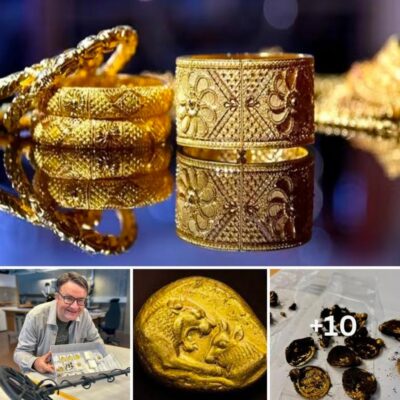Scientists are making guesses as to what the ‘red glob’ washed ashore could be – some think it could be a rare seven-armed octopus.
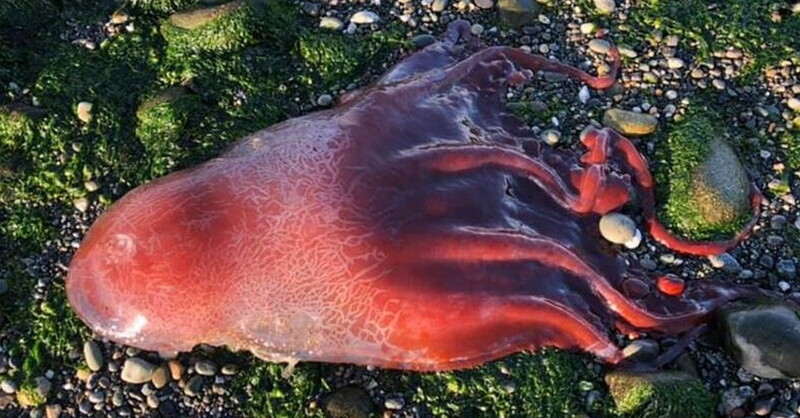
Image
From time to time, a mysterious “thing” from the deep oceans will wash up somewhere on a beach and cause a sensation on social media. And sometimes also among scientists. The latest such spark was a mysterious ‘red glob’ that appeared on the shores of Washington state.
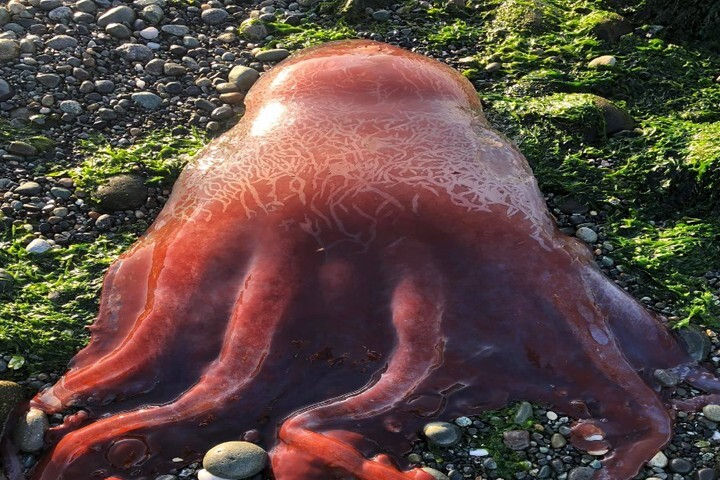
Image
The curious sea creature was discovered on a beach at Ebey’s Landing by local Ron Newberry, a communications specialist who sent the photo to the Whidbey News-Times, explaining he found the creature on the beach during low tide the morning of August 29.
“I didn’t know for sure it was an octopus,” he wrote. “It’s pretty common to see large jellyfish washed up on shore. Not knowing what it was, I definitely didn’t want to touch it. It also was obvious it was dead.
He guessed the unknown creature was about 3.5 feet long.
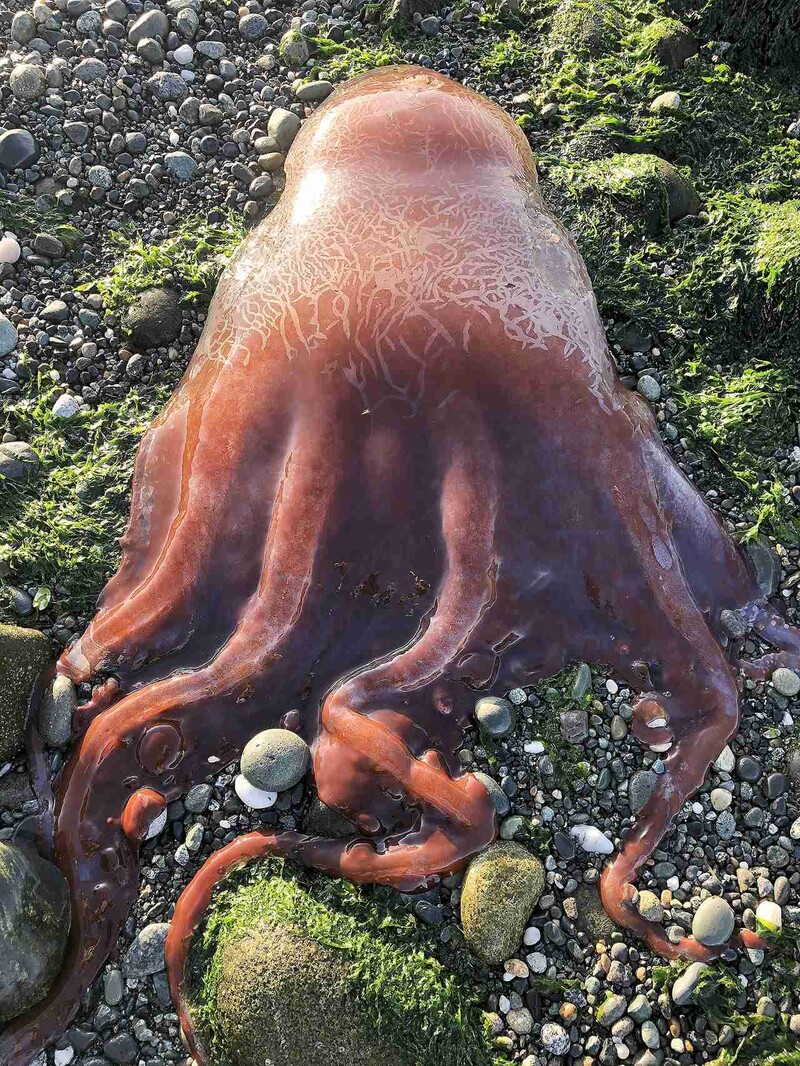
Image
Newberry also shared photos of the specimen on the Whidbey Camano Land Trust social media pages, sparking an online discussion trying to identify the animal.
The misshapen body of the unusual creature spurred various guesses. According to an engineer from the Seattle Aquarium, it looked like a vampire squid, known to dwell as far as 3,000 feet under the sea. Others thought it might be a destroyed giant Pacific octopus, believed to be among the largest octopus species in the world.
The News-Times sent the pictures to a University of Washington biology professor who also wasn’t sure what it was. She sent them to a couple of other biologists who, in turn, sent them to even more experts. Eventually, this resulted in scientists joining the challenge from all over the U.S., including the Monterey Bay Aquarium Research Institute in California, the National Oceanic and Atmospheric Administration and the Smithsonian Institution.
Most of them agreed that the speciemen was a Haliphron atlanticus, otherwise known as the ‘seven-armed octopus.’
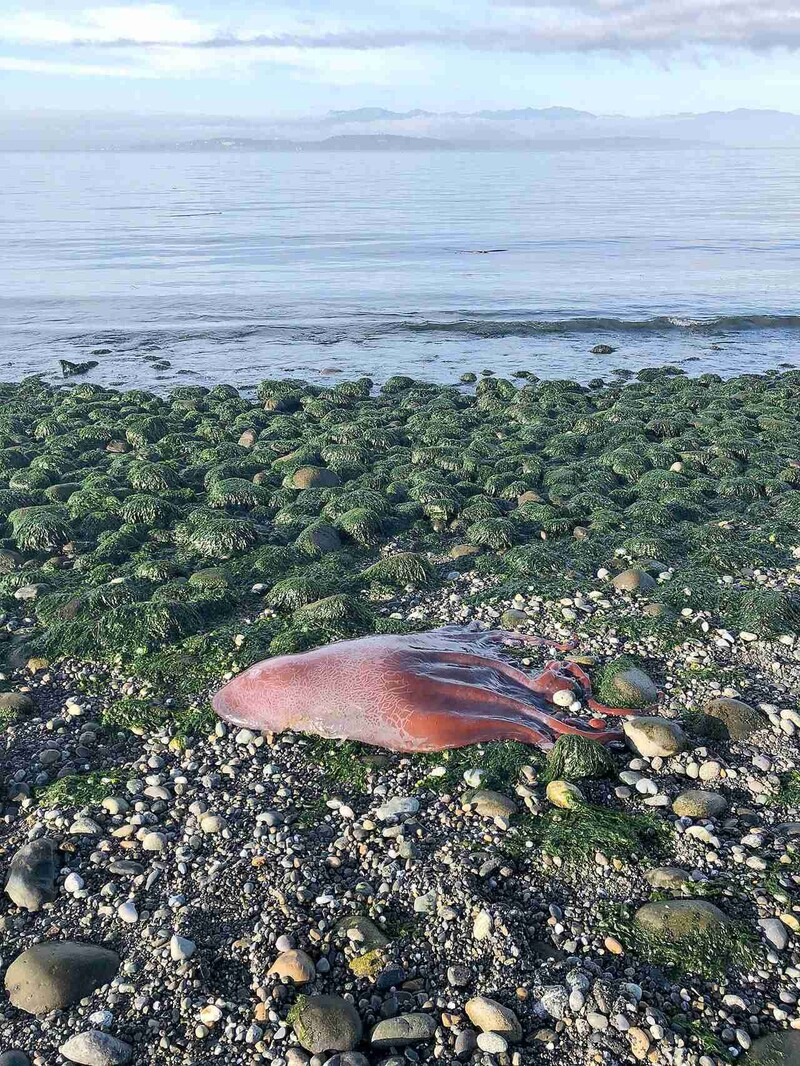
Image
The seven-armed octopus is normally found in the Atlantic Ocean, though they have also been observed in the South Pacific near New Zealand. The likelihood of a seven-armed octopus showing up off the coast of Washington is very small, so the discovery astounded some, but not everybody.
“I’ve seen photos of Haliphron from off the coast of British Columbia, so it’s not that unusual that they are this far north,” Elaina Jorgenson of the National Oceanic and Atmospheric Administration ( NOAA) wrote in an email. “It’s possible that this animal was blown into Puget Sound during the wind storm last week and died from our low salinity waters.”
Another expert had a somewhat different view of the creature’s typical range.
“I was surprised that it was found in Puget Sound, which is pretty far north for that species,” wrote Dr. Michael Vecchione of the Smithsonian Institution in an email. “However, shifting distributions are not unusual in the world lately.”
Taking into account the creature’s somewhat decayed body, scientists agree that the specimen is more likely to be an H. atlanticus than a giant Pacific octopus – its jelly-like texture, shape, and size all sugest the former.
Be it as it may, we know very little about deep-sea creatures, and the seven-armed octopus is not an exception. They get their name because the ‘seven-armed’ males of the species tend to keep their eighth arm tucked up inside in a sac near the eye (and used for breeding purposes). Females, which are typically much larger than males, have eight fully-visible arms.
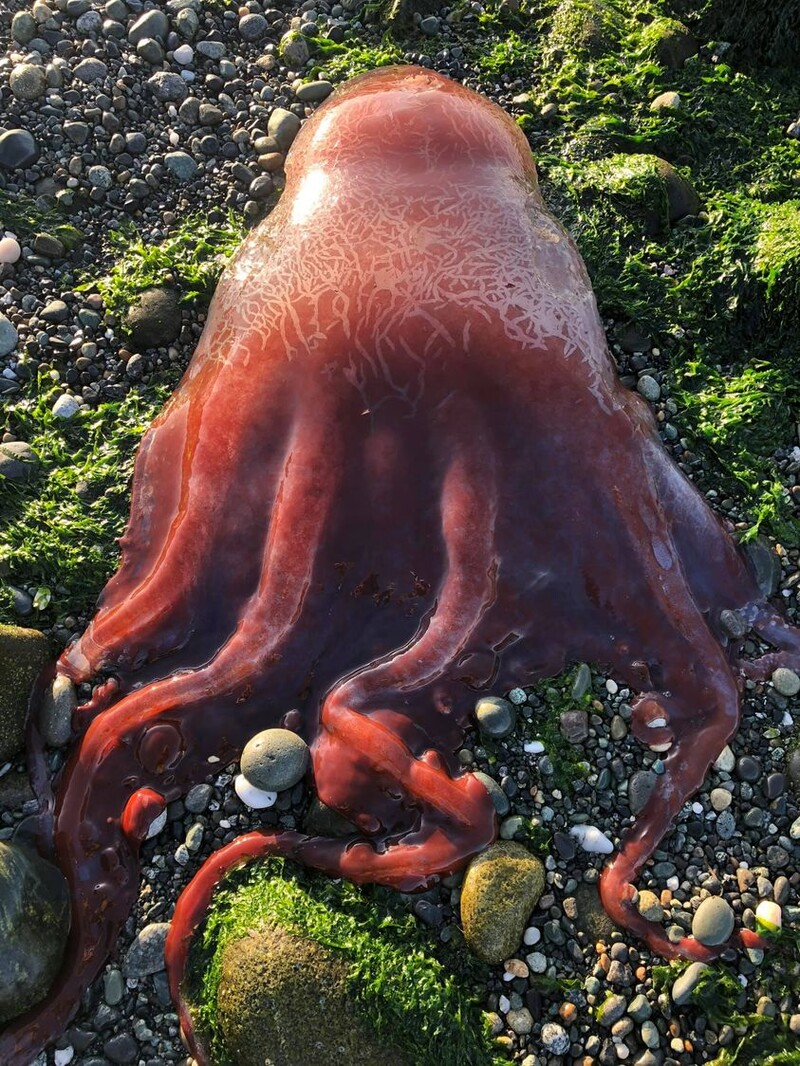
Image
The H. atlanticus swims all the time, similar to jellyfish, which seems to be the octopi’s preferred meal. The species has been competing with the giant Pacific octopus for the title of the largest octopus species in the world. One of the largest specimens of H. atlanticus was identified by New Zealand biologist Steve O’Shea who came across one estimated to weigh somewhere around 165 pounds. The one found by Newberry is quite small by comparison with its 3.5 feet.
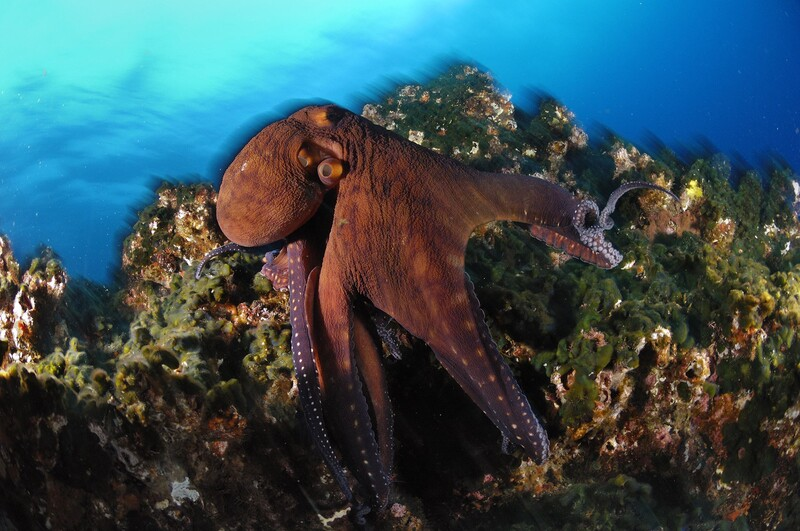
Image
Anyway, if the hypothesis is correct, this may be the first recorded instance of a seven-armed octopus ever found in the Puget Sound area or Washington state.
